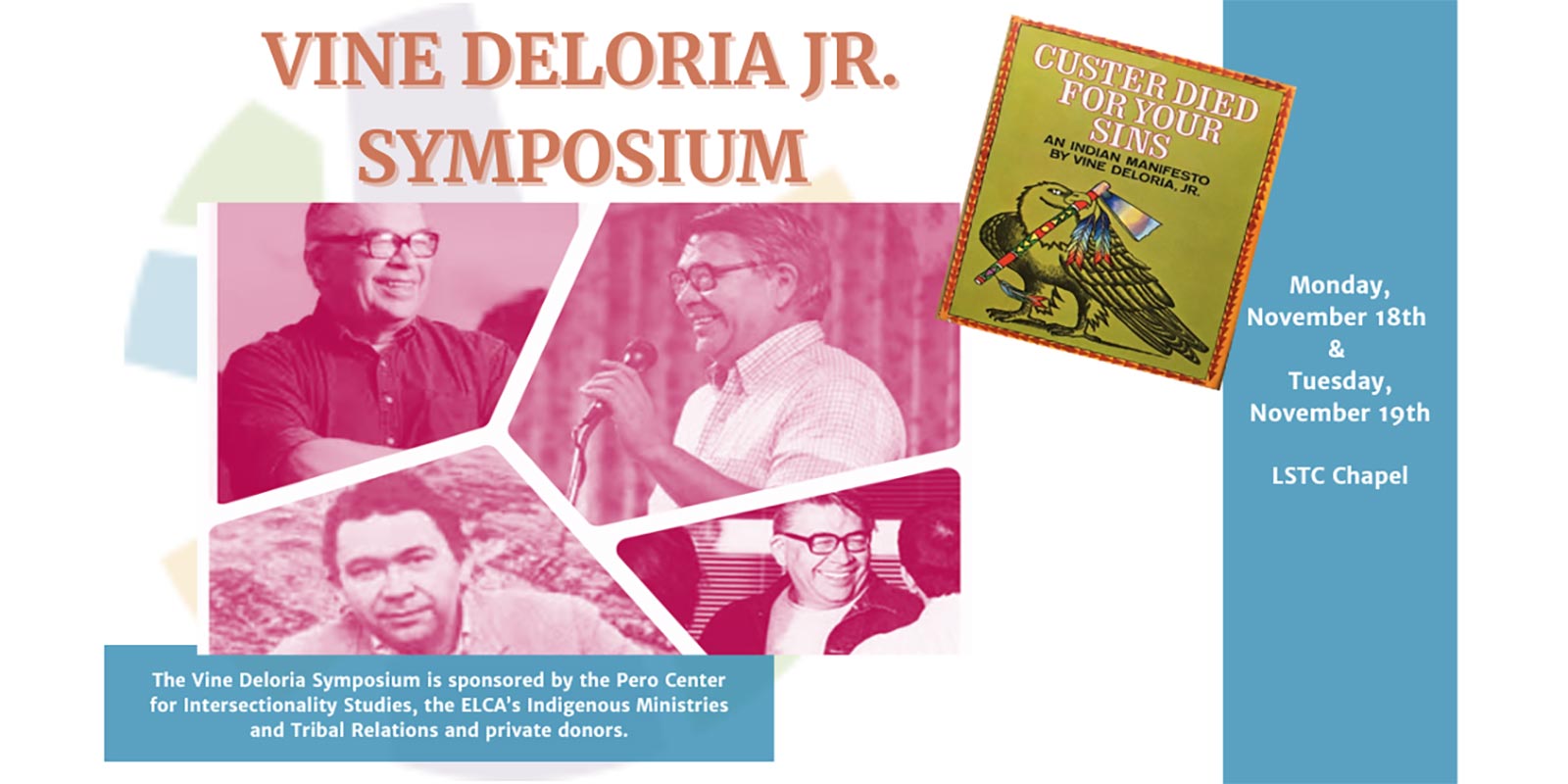
Vine Deloria Jr. Theological Symposium
The Vine Deloria, Jr. Theological Symposium celebrates the life and legacy of LSTC alumni Vine Deloria, Jr., author, historian, and activist for American Indian rights. The focus of this year’s symposium is Vine Deloria’s first book “Custer Died for Your Sins: An Indian Manifesto”, where he highlights the challenges imposed upon Indigenous people by non-Native people, the U.S. government, churches, and others.
The program will include worship, a keynote speaker, a panel and Indigenous arts and crafts. Complimentary parking will be available in the parking garage adjacent to the building.
Event Schedule
Monday, November 18th (Both In-person and online)
| 11:30 am | Worship Service Vance Blackfox (Cherokee), Preacher Pastor Manuel Retamoza (Cherokee) |
For those attending virtually, join the Zoom Meeting using the following link: Chapel Zoom Link.
| 1:30 pm | Symposium Lecturer Rev. Dr. Robert O. Smith (Chickasaw ELCA Pastor) |
For those attending virtually, join the Zoom Meeting using the following link: Symposium Lecture Zoom Link
Reception will be held in the commons immediately following the worship service.
Tuesday, November 19th (Online Only)
| 7:00 pm | Panel Discussion “Custer Died for Your Sins” Panelists: Allie Redhorse Young (Navajo) Rev. Manuel Retamoza (Cherokee) Professor David Martinez (Akimel O’odham/Hia-Ced O’odham/Mexican) |
For those attending virtually, join the Zoom Meeting using the following link: Panel Discussion Link
Panelists
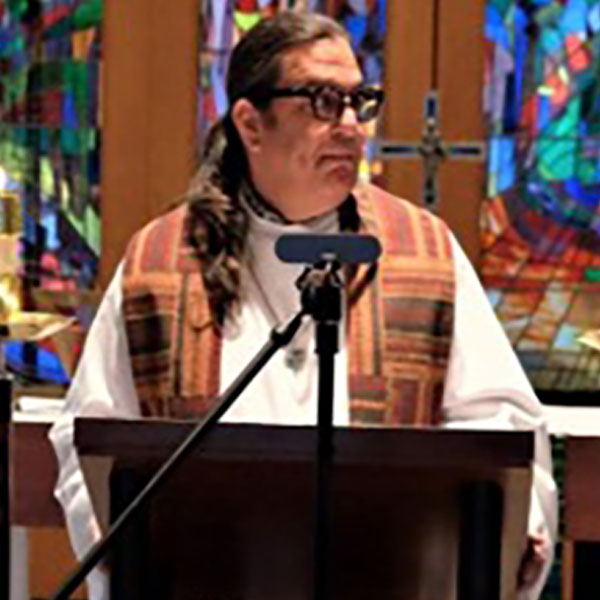
Pastor Manuel Retamoza III is a Cherokee Nation citizen and a first-generation Mexican American
Born and raised in the San Francisco Bay Area of Northern CA, he received his bachelors in fine arts from Seattle Pacific University and earned his Master of Divinity degree from Luther Seminary. It was during his time in seminary that Manuel transferred his church affiliation from the American Baptist Churches USA (ABC) to the Evangelical Lutheran Church in America (ELCA). In 2004, he accepted a call to serve St. Andrew’s Lutheran Church in San Diego, CA, as Associate Pastor of youth and social ministry, where he now serves as senior pastor. Manuel is Program Director for the ELCA Youth Ministry Network Extravaganza, serves as VP of American Indian and Alaskan Native Association of the ELCA Board, and serves as Co-chair of the ELCA Repudiation of the Doctrine of Discovery task force. Most recently, he accepted a position as Wisdom Keeper or instructor for the newly formed Theological Education for Indigenous Leaders: a 3-year program through Pacific Lutheran Theological Seminary to empower and educate Indigenous Ministry Leaders.
Being raised in California means his family history includes the US/Mexican border crossing with his family and his family’s crossing the border for generations. This family history and experience informed his call to ministry as he guides several border education experiences for groups from across the country and in his own congregation each year. In addition to serving as senior pastor at St. Andrew’s, Manuel is Program Director for the ELCA Youth Ministry Network Extravaganza, serves as VP of American Indian and Alaskan Native Association of the ELCA Board, and serves as Co-chair of the ELCA Repudiation of the Doctrine of Discovery task force. Most recently, he accepted a position as Wisdom Keeper or instructor for the newly formed Theological Education for Indigenous Leaders: a 3-year program through Pacific Lutheran Theological Seminary to empower and educate Indigenous Ministry Leaders. He was Co-director of the Western States Youth Gathering 2023 and serves on the Pacific Lutheran Theological Seminary advisory board.
Manuel spends time with his family camping in their teardrop, hiking, bike riding, and working on home projects. His wife Lisa is a skilled chef and manages a local grocery store. and shares her culinary skills with St. Andrews for meals throughout the year. Manuel Glenn, their son, is a year-round staff member at Lutheran Retreats Camps and Conferences of Southern California. Their daughter Isabel and her husband Blaze live in Chicago, where she is studying law at the University of Illinois Chicago School of Law.
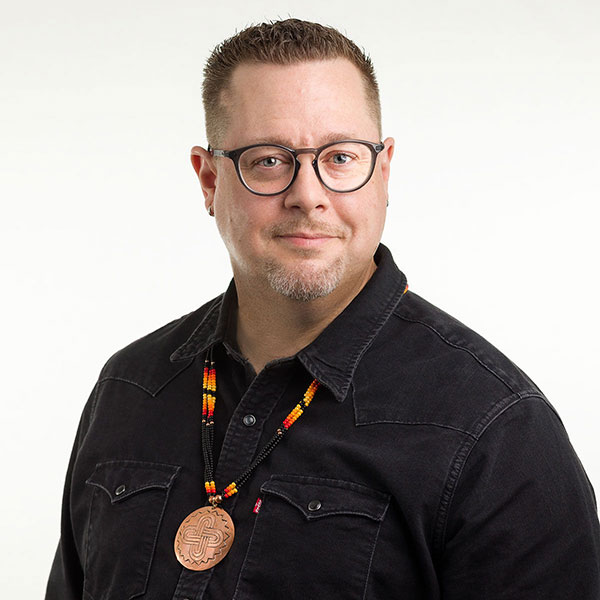
Robert O. Smith (Chickasaw) is Assistant Professor of History at the University of North Texas, specializing in religious history, Indigenous studies, and critical race studies. Smith, an enrolled citizen of the Chickasaw Nation, is ordained as a pastor in the Evangelical Lutheran Church in America (ELCA). In addition to many academic articles, he is the author of More Desired than Our Owne Salvation: The Roots of Christian Zionism (Oxford, 2013) and editor, with Göran Gunner, of Comprehending Christian Zionism: Perspectives in Comparison (Fortress, 2014). Currently, he is co-researching and -writing three book-length projects on the movement and discipline of critical race theory under contract with New York University Press, the University of California Press, and Penn State University Press. Along with his research and writing partner, noted rhetoric and writing studies scholar Aja Y. Martinez, Smith draws on mixed methods, ranging from archival, to ethnographic, to literary and rhetorical analysis, to re-tell the stories of CRT’s origins within the broader scope of US history.
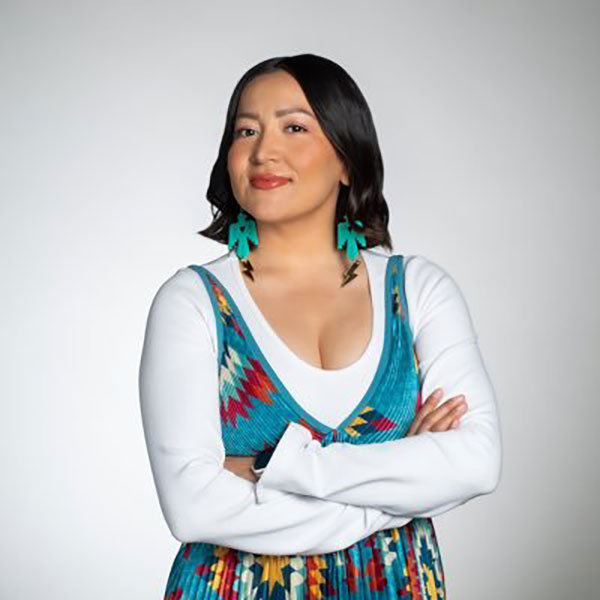
Allie Redhorse Young, a citizen of the Navajo Nation, is the founder and Director of Protect the Sacred – launched to educate and empower the next generation of Native American leaders and allies. She ensures Native voices, especially Indigenous youth and womxn, are central in culture and policy. Allie aims to replace the fabricated American narrative with authentic stories of her people, the original storytellers of this land.
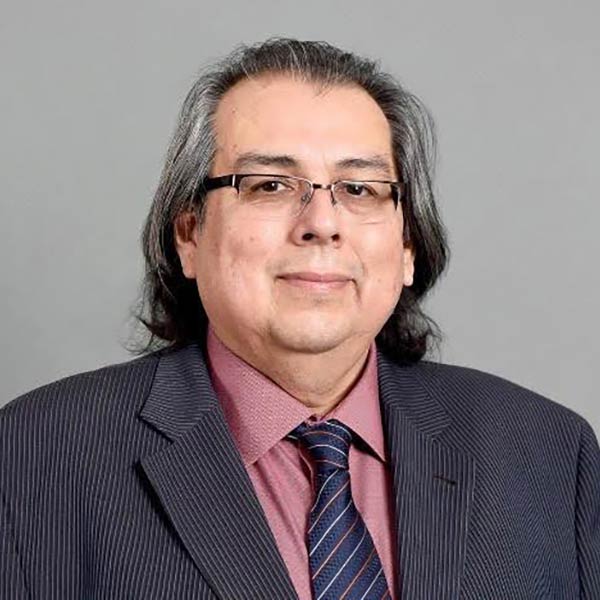
David Martínez (Akimel O’odham/Hia-Ced O’odham/Mexican), Professor of American Indian Studies and Transborder Studies (joint appointment), is the author of Dakota Philosopher: Charles Eastman and American Indian Thought (2009), Life of the Indigenous Mind: Vine Deloria Jr and the Birth of the Red Power Movement (2019), My Heart Is Bound Up With Them: How Carlos Montezuma Became the Voice of a Generation (2023), and editor of The American Indian Intellectual Tradition: An Anthology of Writings from 1772 to 1972 (2011). Prof Martínez is also the director and founder of the Institute for Transborder Indigenous Nations, which is housed in the School of Transborder Studies, where it focuses on the Indigenous nations impacted by the US-Mexico Border.
About Vine Deloria, Jr.
At the height of the American Indian Movement and beyond, Vine Deloria Jr. played a significant role in strengthening tribal sovereignty for federally recognized tribes in the United States. As an author, historian and activist for American Indian rights, Deloria served as executive director of the National Congress of American Indians and became a law professor at the University of Arizona College of Law. In 1978, he established the first master’s degree program in American Indian Studies at the University of Arizona. In 1963 Deloria earned a theology degree from the Lutheran School of Theology at Chicago, then Augustana Seminary in Rock Island, IL.
About the Book
In 1969, Deloria wrote the book Custer Died for Your Sins: An Indian Manifesto, where he writes about the challenges posed to Indigenous people by non-Native people, the U.S. federal government, churches and others. He offers new ways of thinking about those challenges and a philosophy for how Native Nations and leaders of the American Indian Movement and others might respond. In the book, Deloria offers both pragmatic and philosophical wisdom about moving forward toward justice. Readers are challenged to consider questions like; “How much has changed?” and “Might we still be dealing with similar challenges even today?”
Symposium participants will hear from scholars and leaders, who will reflect on the text and how Deloria might be speaking to us today about the challenges we face and how we should respond.
The Vine Deloria Jr. Theological Symposium is sponsored by the Pero Center for Intersectionality Studies at LSTC, the ELCA’s Indigenous Ministries and Tribal Relations and private donors.
For more info, contact the Pero Center at perocenter@lstc.edu.
